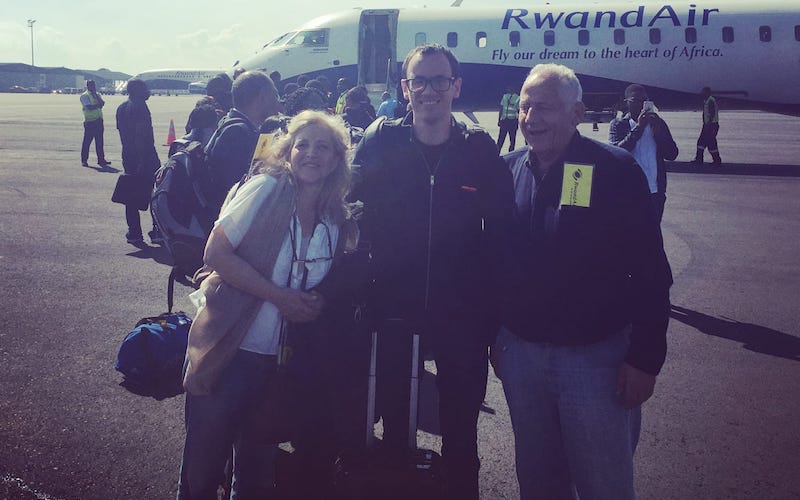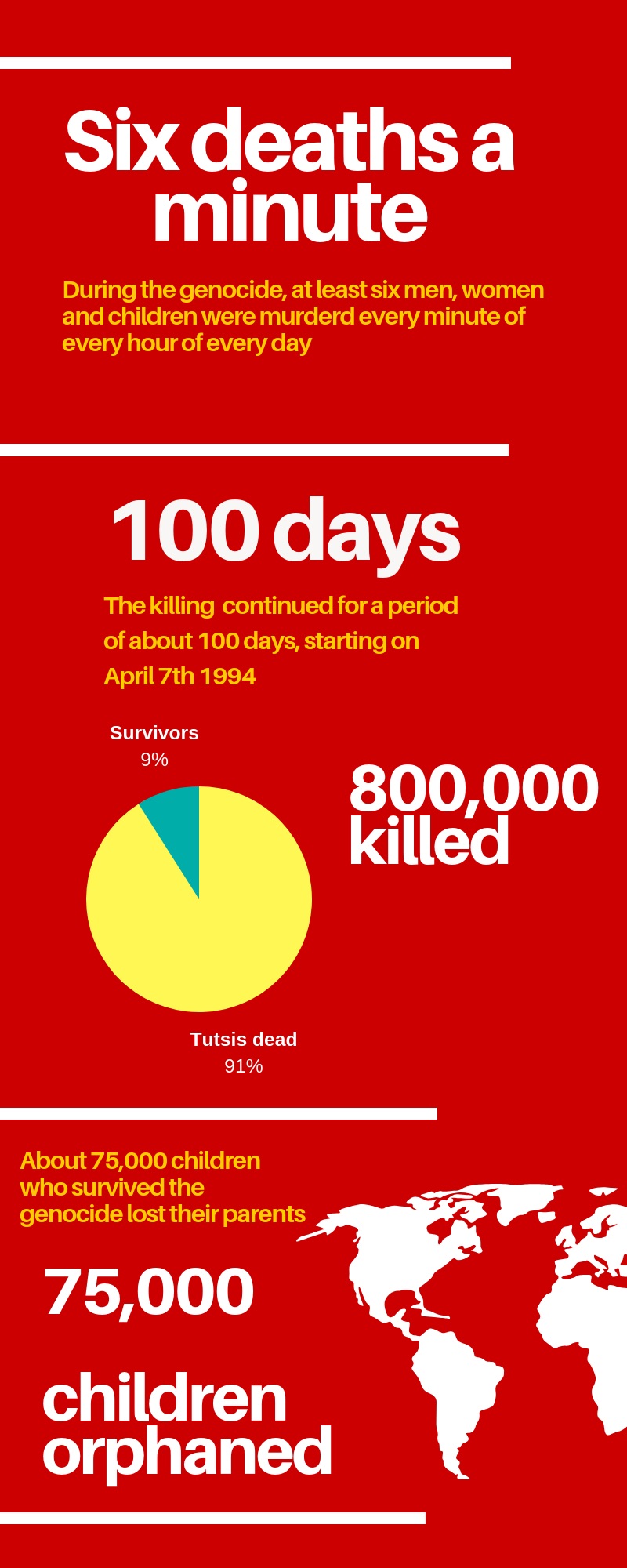A UK charity will publish a series of short films in October as the Rwandan genocide still weighs heavy on survivors, but seems largely forgotten by the rest of the world.
As part of an ongoing awareness series, C force for Change (CFOR) is documenting its reconciliation work between perpetrators and survivors who live next to each other in the East African communities of Kigali.

MAKING CHANGES: (from left) Arlene Audergon CFOR, Daniel Johnson, Jean Claude Audergon CFOR
More than two decades after the genocide in 1994, where about 800,000 Rwandans were killed in the space of 100 days, the country is more in need of attention than ever, say the organisation’s founders Jean Claude Audergon, 71, and Arlene Audergon, 63, who have been facilitating the forums for conflict resolution and future violence prevention.
Daniel Johnson, 33, screen writer and documentary filmmaker, who worked with the charity for the first time in June 2017, said: “The tricky thing is that it isn’t a movie, so you can’t guarantee a happy ending.
“After the news cameras leave, after the world switches off and focuses on something else, what’s left behind is a traumatised society and there are survivors who need answers.”
The documentary series ‘Stopping the World: Worldwork Rwanda’ captures how CFOR mediates conversations between perpetrators and victims of violence over a three day forum to help community members and, above all, young people to find the answers they seek.
It is the young Rwandans in the communities that are left with the legacy of repercussions from a generation’s past.

Mr Johnson said: “Everybody is affected by what happened. Everybody. You don’t meet a person who doesn’t have a very painful story.”
He added: “Survivors need answers, they need to know ‘where are my mum and dad buried?’, ‘what happened to my son?’ ‘what happened to the land I owned?’, and the only people who can answer those questions are the perpetrators.”
The forums, held at community centres and often attended by more than 150 members, create an environment where those questions can be answered in a safe space.
Mr Audergon said: “Trauma is public. War is public. Trying to heal that individually would be ignoring that this is a community issue.”
As trained facilitators, Mr and Mrs Audergon guide victims and perpetrators through conversations about rapes and killings and help them achieve conflict resolution.
Many survivors have no idea what happened to family members or loved-ones and need to know where their bodies are buried.
Mrs Audergon said: “This is a really big issue, if you don’t find the bodies you never get a chance to lay them to rest with dignity, you never get the chance of any closure, it’s a fundamental human need.”
During their last forum, a perpetrator came forward and lead Rwandan authorities to the unearthing of yet another undiscovered mass grave, providing some sort of closure to at least part of the Rwandan community.
For donations go to: https://www.cfor.info/donations/
Feature image shows Daniel Johnson
